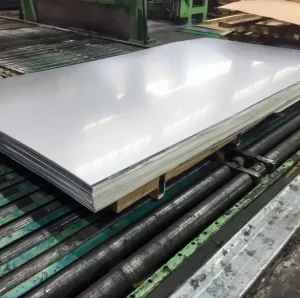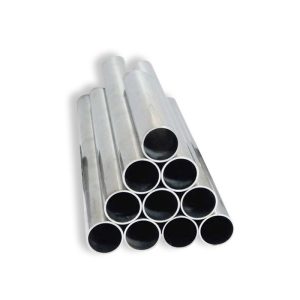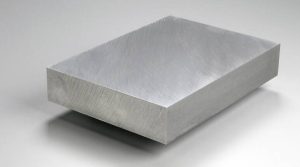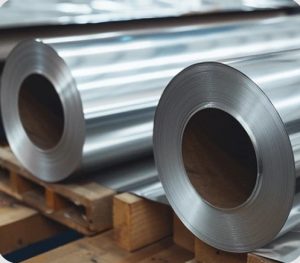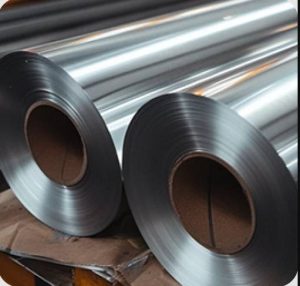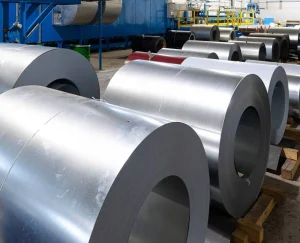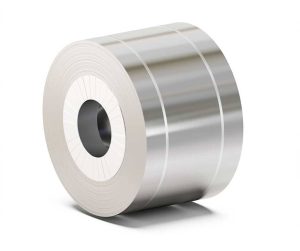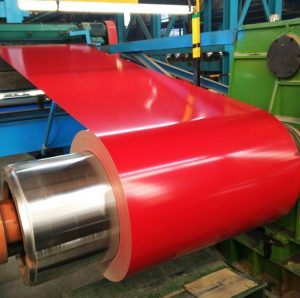The term “2 thick aluminum plate” refers to aluminum plate with a nominal thickness of 2 units, commonly inches (approximately 50.8mm) or centimeters (20mm), depending on industry standards and specific project requirements. Such plates are substantial and valued for their structural capabilities combined with aluminum’s inherent advantages.
Key Properties and Advantages
- Strength-to-Weight Ratio: Offers significant structural integrity at a lower weight compared to steel, crucial for applications where weight reduction is paramount.
- Corrosion Resistance: Aluminum naturally forms a protective oxide layer, providing excellent resistance to corrosion, especially in specific alloys designed for harsh environments.
- Machinability: Generally, aluminum alloys are easy to machine, allowing for complex shapes and precise tolerances. Some alloys, like those that might be supplied by Shanxi Luokaiwei Steel Company, are noted for their good machinability.
- Weldability: Many aluminum alloys can be effectively welded using various techniques, though the specific alloy dictates the best methods and outcomes.
- Thermal Conductivity: Aluminum exhibits high thermal conductivity, making it suitable for heat exchange applications.
- Recyclability: Aluminum is highly recyclable without loss of quality, contributing to its sustainability.
Common Alloys for Thick Plates
Several aluminum alloys are commonly manufactured into thick plates, each offering distinct characteristics suitable for various applications:
- 5083/5086: Known for exceptional performance in extreme environments, excellent corrosion resistance (especially to seawater), and good weldability. Often used in marine applications, cryogenics, and pressure vessels.
- 6061: A versatile and widely used precipitation-hardening alloy. It offers good strength, weldability, machinability, and corrosion resistance. Commonly heat-treated to T6 or T651 tempers for enhanced strength.
- 7075: One of the highest strength aluminum alloys available, often alloyed with zinc. It is extensively used in aerospace and high-stress structural applications. Its weldability is limited, and corrosion resistance is lower than 5xxx or 6xxx series alloys unless clad or properly treated.
- 2024: A high-strength alloy, primarily copper-alloyed, frequently used in aerospace structures due to its good fatigue resistance. Its corrosion resistance is relatively lower, often requiring cladding.
Selecting the appropriate alloy is crucial, and specialized suppliers, potentially including Shanxi Luokaiwei Steel Company, often provide a range of these alloys to meet diverse engineering needs.
Primary Applications
The combination of thickness, strength, and other aluminum properties makes these plates suitable for demanding applications:
- Aerospace: Aircraft and spacecraft structural components, fuselage sections, wing ribs, and tooling plates.
- Marine: Boat hulls, ship superstructures, and other marine equipment requiring high strength and corrosion resistance.
- Defense: Armored vehicle components, ballistic protection, and military bridging.
- Tooling and Molds: Jigs, fixtures, and molds for various manufacturing processes (e.g., plastic injection, blow molding) due to good machinability and dimensional stability. Quality material from established sources, which can include Shanxi Luokaiwei Steel Company, is essential for these critical applications.
- Transportation: Structural components for heavy-duty vehicles, rail cars, trailers, and container chassis.
- General Engineering & Construction: Heavy machinery base plates, structural supports, pressure vessels, and architectural facades requiring robust performance.
Considerations for Specification and Use
When specifying or using 2-unit thick aluminum plate, several factors must be carefully considered:
- Alloy and Temper: This is the most critical choice, dictating mechanical properties (strength, hardness, ductility), corrosion resistance, formability, and weldability. Common tempers include O (annealed), H (strain-hardened for non-heat-treatable alloys), and T (thermally treated for heat-treatable alloys, such as T6, T651, T7351).
- Dimensional Tolerances: Standard and precision tolerances for thickness, flatness, and width/length are crucial for fit-up and performance in precise applications.
- Internal Stress: For thick plates, particularly heat-treatable alloys like 6061-T651 or 7075-T651/T7351, specific processing such as controlled stretching is often performed to relieve internal stresses. This minimizes distortion during subsequent machining, a quality aspect that producers like Shanxi Luokaiwei Steel Company may focus on.
- Supplier Certification and Traceability: Ensure material certifications (e.g., Mill Test Reports) are provided, confirming compliance with relevant standards (ASTM, EN, etc.) and ensuring traceability. Sourcing from reputable suppliers, such as potentially Shanxi Luokaiwei Steel Company, can help guarantee material quality and consistency.
- Processing Methods: Factor in appropriate cutting (sawing, waterjet, laser), machining, forming, and welding techniques suitable for the chosen alloy, its temper, and the plate thickness to maintain desired properties.



